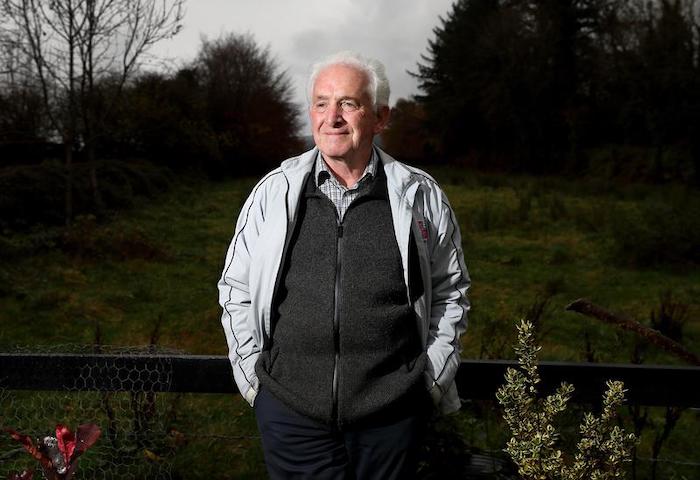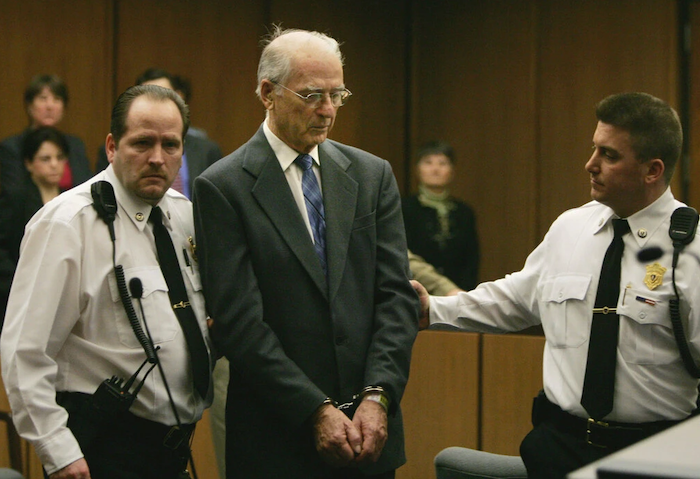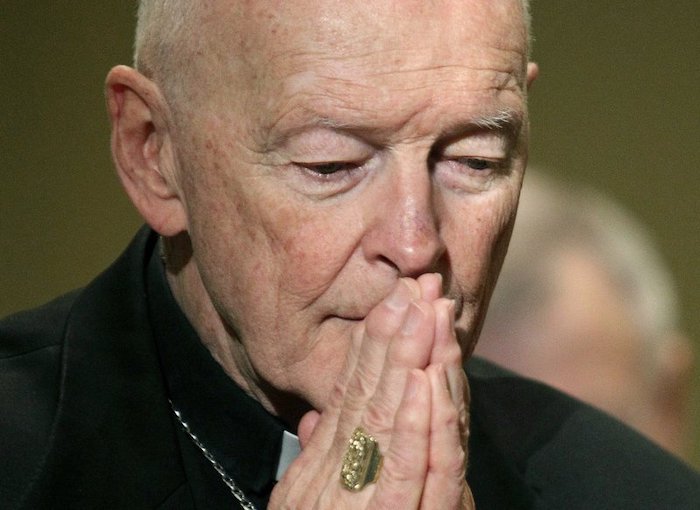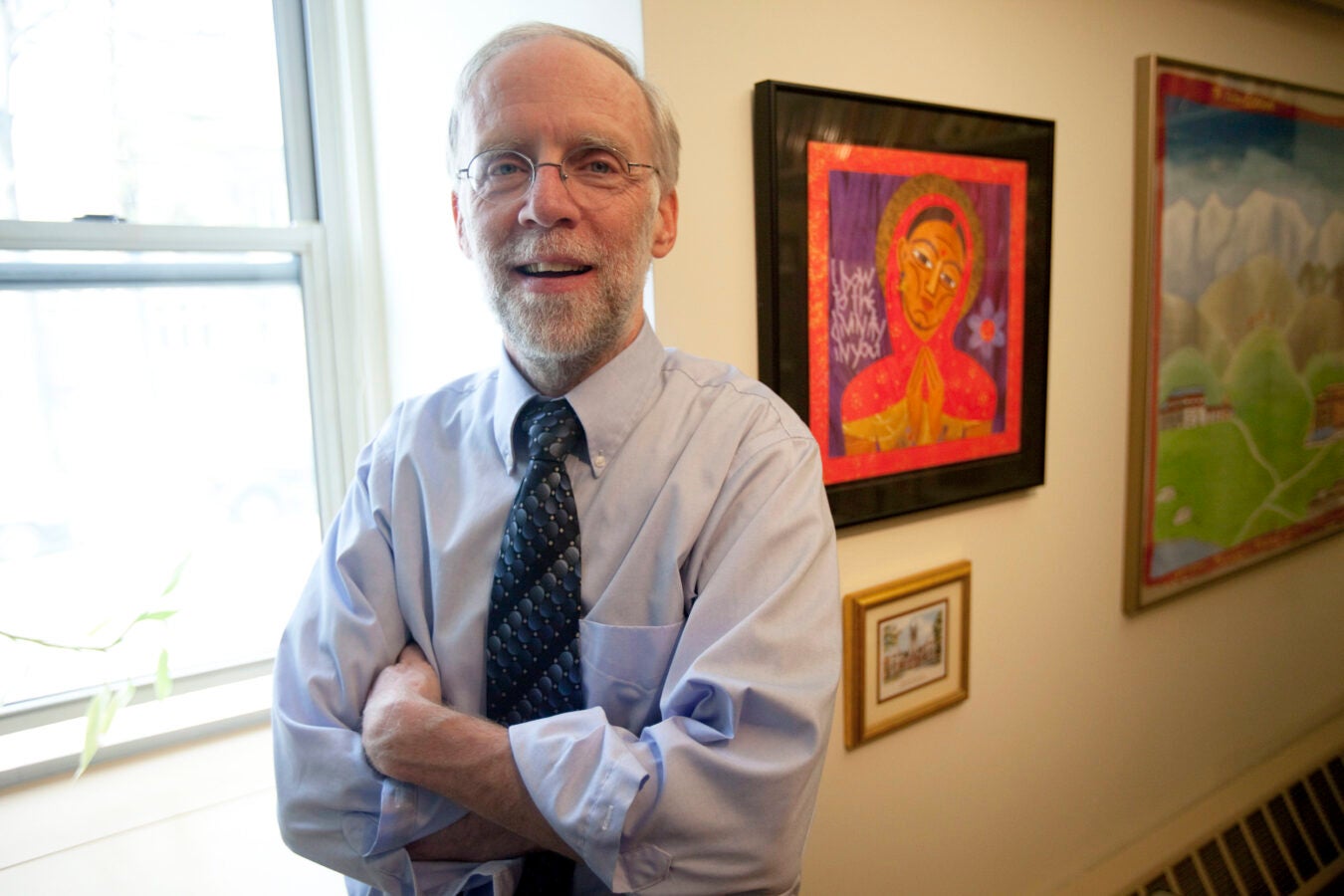The dissident priest reveals why he voted ‘yes’ to repeal and why he considers the exclusion of women the ‘biggest blight’ on the Catholic Church

By Ellen Coyne
Fr Tony Flannery started laughing as soon as he read what he was expected to sign.
The outspoken priest, who was suspended by the Vatican in 2012, received a letter in September that suggested he could return to ministry if he signed a document vowing to obey the church’s teaching on women and LGBT+ people.
He had been effectively banned for publicly saying the church should change its position on such issues. “What kind of crazy people are they?” he laughed. Fr Flannery and others had hoped that Pope Francis had ushered in a more open era for the Catholic Church, but the Vatican still takes a hard line with those who challenge it.
Fr Flannery is aware of others who had taken on the Vatican and had died “because of the stress of the thing”.
“I’ve said to myself, the one thing I have to avoid is becoming embittered. Because if I become embittered I will destroy myself,” he says. “There are a lot of people in the church who think like me. Why don’t they go public? Some of them would be afraid, yes.”
The 72-year-old has taken advantage of his position in the pews, rather than at the altar, to write a new book called From the Outside: Rethinking Church Doctrine. It calls for sweeping reform of the Catholic Church, including its attitudes to women and sexuality.
“The church is so locked into old doctrines and old ideas, even though the world has completely moved on and left all of that behind,” he says.
He has little faith in those who are at the top of the church at the moment, and says the Vatican is full of “pathetic” careerism. The Irish Catholic bishops don’t inspire him either, and he notes that Archbishop Diarmuid Martin was the only senior Irish cleric to publicly welcome Pope Francis’s recent comments condoning civil partnerships for same-sex couples.
Huge leap
“What Pope Francis said was that homosexual people are human beings, who are as entitled to love and relationships as anyone else and should be respected as such. That is a huge leap forward. Church teaching is still very reliant on the old, awful discrimination against gay people.”
Fr Flannery was a founder of the Association of Catholic Priests, and at the height of the clerical child sex abuse scandal found himself bombarded with requests for help from accused clergy.
As a child, he was a victim of sexual abuse himself. He recoils at the word “survivor”, because he does not believe that his experience of abuse has had a devastating effect on his life.
In 2014, he upset survivors of institutional abuse and advocacy groups when he suggested that priests accused of child abuse should be forgiven and allowed to return to the ministry. He still believes, and argues in his book, that child abusers are not entirely bad people, and claims that they deserve forgiveness.
“The idea that the person who abuses a child is inherently a bad person, I don’t go along with that. I think that we are all inherently a mixture of good and bad,” he says.
I ask if he is aware this is a very upsetting thing to say? First of all, because of the possible perception that those within the church are once again shielding paedophiles from the consequences of their actions, and secondly because many people see child sex abuse as an evil thing that they could not possibly forgive. “There is an element of evil to child sex abuse, it is an awfully evil thing,” he agrees. “But I’d be fully aware that what I’m saying is not in line with the popular consensus, but that’s what has me where I am.”
Fr Flannery tries to broach the thorny issue of the incidence of paedophilia among Catholic clergy. He explains that making priests “superior” people with closer relationships to God is “dreadfully dangerous”. He believes that this, combined with forced celibacy and the church’s regressive attitudes to sexuality, can manifest itself in abusive behaviour.
But isn’t that also a deeply controversial thing to say? Not least because it suggests that anyone could be capable of the monstrosity of child abuse if they existed in certain circumstances. It also appears to lay the blame for abuse on the institution rather than the individual carrying it out.
“It is, I know,” he says. “And I’ve dealt with that many times over the last 10 years. I’d be fully aware of that. But that is the truth as I see it.”
For most of the last decade, he has been attacked by right-wing Catholic commentators.
He says it’s “probably true” that groups such as the Iona Institute have put people off Catholicism. He singles out the American Catholic Church for its “appalling” support of Donald Trump.
A number of prominent US Catholics chose to back Trump over Joe Biden, a devout Catholic, because the Republican candidate claimed to be anti-abortion while the Democrat supports pro-choice policies.
“Pope John Paul and Pope Benedict put the most right-wing, narrow-minded and reactionary people into office in the church in the United States,” Fr Flannery says.
“Abortion is a single issue, and life is much more complicated than that. The ironic thing is that Trump was doing feck all about abortion. He couldn’t care less about abortion.”
Fr Flannery said that he finds the issue of abortion “very, very difficult” but after much internal wrangling voted ‘yes‘ in the 2018 referendum — the most difficult vote of his life.
“I don’t have any connection with the emotion and the distress and everything else of pregnancy, the whole world is foreign to me. Here I would be again, another male celibate priest, telling women how they should live their lives. And I said, we’ve had more than enough of that,” he says.
The banned priest says that the more he has thought about it, the more convinced he is that the church’s attitudes to and exclusion of women has been a “biggest blight” on the institution since the beginning.
“It has to change, and it will change,” he said, dismissing attempts by Pope John Paul and Pope Benedict to shut down discussion on the issue as a “total failure”.
Even the current pope, who Fr Flannery refers to sympathetically as “poor aul’ Francis” for his uphill struggle for reform, has disappointed him.
“Some of the things he says about women are so patronising. Oh God, I go mad at times,” he says.
Fr Flannery’s arguments for church reform are clear and unapologetic.
But was there ever any fleeting doubt? Did he ever worry that the Vatican might be right, and that God might disapprove of what he was calling for?
“No,” he said, firmly. “I’d have no doubt that the Vatican and the way it operates has nothing to do with God.”
Much like Mary McAleese, Fr Flannery’s calls for the Catholic Church to be better have been regularly met with derision from some right-wing Catholics and the suggestion that he should “go off and become a Protestant”.
Well, why wouldn’t he? Surely after everything he’s been through with the Vatican, he must have considered it, even briefly?
“Arah, no,” he says. “Catholicism is part of what I am and has been all my life. I couldn’t even conceive of it.”
Complete Article ↪HERE↩!





